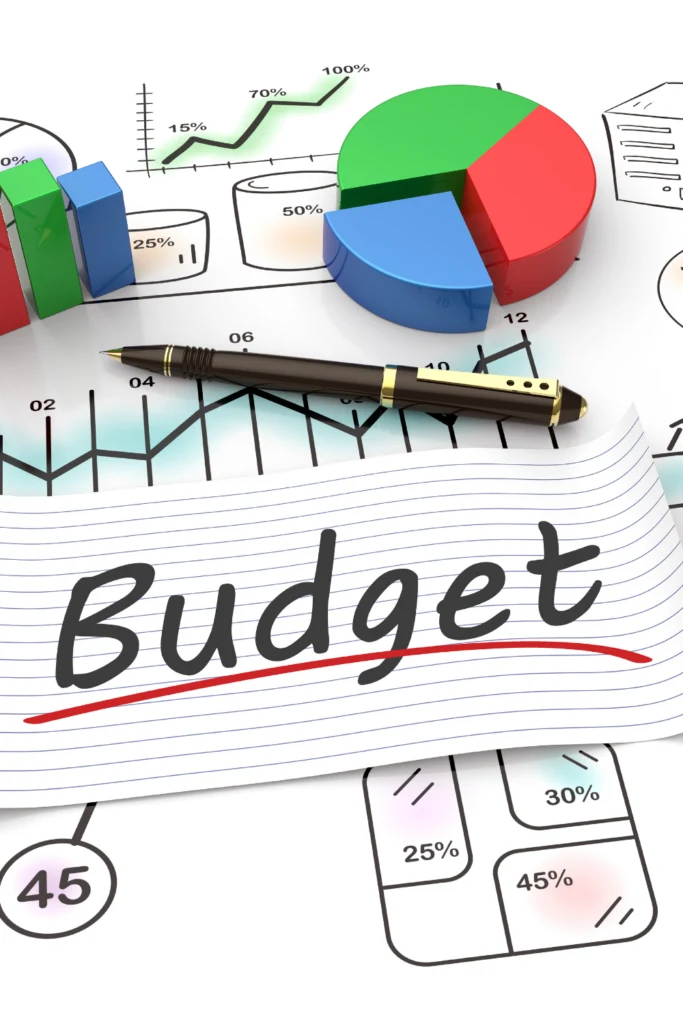“Stop drinking coffees every day,” is a common piece of advise when discussing easy ways to reduce living costs.
Well, if you’re anything like me, Starbucks wasn’t your go-to place for daily coffee.
There is much more to keeping a budget and reducing household spending than giving up trips to the neighborhood coffee shop.
Cutting back on home spending and creating and implementing a new budget don’t have to be difficult for you.
Let’s talk about how to make little financial adjustments for long-term savings and budgeting success and ways to cut your living expenses today!
Disclosure: Bear in mind that some of the links in this post are affiliate links and if you click on them to make a purchase I will earn a commission. Keep in mind that I link these companies and their products because of their quality and not because of the commission I receive from your purchases. The decision is yours, and whether or not you decide to buy something is completely up to you.
5 Ways To Cut Living Expenses
Perform An Audit
An audit is the initial step in finding ways to save money.
Even though you often hear about audits performed by businesses, audits are a useful tool for examining the transactions in your account.
When doing an audit, you should look at the following:
-Payments or transactions made to the account
-Money that leaves the account in the form of expenses like bills or requirements
-Everything else that leaves the account
Your bank statements can be printed out to accomplish this. I’d start with three to six months.
Make line-by-line highlights of the expenditures for essentials, incoming transactions, and anything else not included in those two categories using highlighters of various colors.
Focus on the category of expenses that are outgoing once you’ve segregated the income categories and given them distinct highlights. What costs can you eliminate right now?
 Fix The Leaks
Fix The Leaks
Make modest adjustments to “repair the leaks” rather than making drastic cuts in spending all at once (which do not last long-term).
Each month, any missing funds are considered leaks.
One example of a leak is money spent on fast food.
Utility, food, and entertainment leakage are a few you might not want to be concerned about at the moment.
You don’t have to stop going out to watch movies or start eating out less.
Simply said, it means you’ll be more aware of where your money is going so that it can be tracked and used appropriately.
Everyone should occasionally treat themselves to entertainment, date evenings, and other things!
Related Articles: How To Save Money On Groceries
7 Ways For Moms To Make Money From Home
12 Reasons You Need To Start A Blog TODAY!
Negotiate Utilities
Contrary to popular belief, you can call and ask for a reduced monthly payment on some of the expenses you don’t wish to forgo.
Cell phone, internet, and cable fees can make up a sizable portion of your monthly spending.
If these costs are deducted from your account automatically, you can frequently be unaware that your monthly expenses are rising.
You can choose to reduce the number of cable channels you receive or switch to a less expensive TV subscription like Netflix or Hulu.
Internet costs can also be reduced by merely agreeing to a lower fee for a specific period of time.
Many mobile phone providers provide discounts to members of the military, veterans, teachers, first responders, AARP, and more!
Understanding exactly what you are paying for and what you require for your particular needs is crucial when negotiating utility costs.

Track Food Expenses
We can all agree that the price of goods has increased significantly due to inflation since the pandemic struck.
Meal planning for a week or more in advance can help offset the expense of goods.
This will make it easier for you to stick to a rigorous grocery list of the ingredients your recipes require.
If you are a “impulse buyer,” placing an online order and picking it up through grocery or store pickup may also save you money.
No more impulsive purchases thanks to grocery pickup. Keep to the food items on the list and only buy what your family will eat.
Reevaluate Entertainment Costs
How much do you spend each month on entertainment? This is one of the easiest ways to cut living expenses right now!
Your entertainment budget should account for things like video game subscriptions, streaming services, PPV movie purchases, family bowling nights, and more.
The key first step of strategies to reduce home expenses is simply being aware of how much you are spending.
You don’t have to fully stop enjoying entertainment.
Then determine your entertainment budget. Making wiser decisions with the money you’ve put out for entertainment requires creating a budget.
Pop some popcorn at home and rent a new movie from Redbox to watch a movie instead of going to the cinema with popcorn and everything.
Sometimes spending time with your family or on a date at home is the greatest option!
Make family night budgeting into a game to incorporate the whole family in this!
Find the best movie night selections, the cheapest bowling days and hours, and more as a family challenge.
Not only would this make family or romantic nights more enjoyable, but it will also teach everyone how to make responsible financial decisions.

Make Larger Cuts
When you’ve exhausted the above mentioned household expense reduction strategies, delve a little further and make some even more severe cuts.
Or attempt to think bigger by aiming to increase your budget’s income!
To achieve this, you can start a side business, such as selling handmade goods on Etsy, working as a virtual assistant, looking for a part-time remote employment, and many other things.
When it comes to varying your revenue sources, the options are almost unlimited!
Final Thoughts On Ways To Cut Living Expenses
It need not be painful to eliminate pointless spending and sustain that budget over the long term.
Initially, it could be a little alarming to learn where all of your money is going.
To reduce living expenditures, it is a necessary first step, nonetheless! Try the above ways to cut living expenses today and for your financial future.
Works Cited

